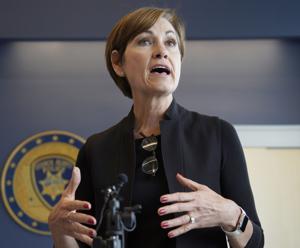Iowa launches programs to aid renters, homeowners at risk of homelessness due to COVID-19

(The Center Square) – Iowans who are at risk of losing their homes may be eligible for two programs.
The Iowa Rent & Utility Assistance Program will provide eligible COVID-19-impacted renters assistance with rent and utility bills for up to a combined total of 12 months.
The governor also has allocated funds for a COVID-19 Iowa Homeowner Foreclosure Prevention Program, which is open to current owners who are at risk of foreclosure due to a COVID-19 related loss of income that occurred on or since March 13, 2020 and have household income less than or equal to 80% of the area median income. Eligible households can receive mortgage assistance of up to four months or $3,600, beginning with the April 1, 2020, mortgage payment.
“This program will be open until the funds are exhausted or, quite frankly, until the new Federal Home Ownership Assistance Program will become available,” Durham said.
Iowa Finance Authority and Iowa Economic Development Authority Director Debi Durham announced the programs March 24 at Gov. Kim Reynolds’ weekly news conference. Both programs commence at 2 p.m. March 29.
“To be eligible for assistance, renters and households must have a household income of no more than 80% of the area median income, which will be calculated automatically as part of the application process,” Durham said. “Additionally, one or more individuals in the household must have either qualified for unemployment benefits or experienced a reduction in household income, incurred significant cost or experienced other financial hardships due directly or indirectly to COVID. And finally, the household must also be able to demonstrate a risk of experiencing homelessness or housing instability, which may include a past due utility or rent notice or even, unfortunately, an eviction notice.”
Residents of Polk County and the City of Des Moines need to apply directly for their local emergency rental assistance program, the Emergency Rental Assistance Program, at ImpactCap.org, Durham said.
“Once funding for the local program has been exhausted, the state program will open up applications for Polk County and Des Moines residents at that time,” she said.
Rental assistance can include past due payments and up to three months of future assistance requested at a time. Utility bill assistance can only include past due payments. Electricity, natural gas, propane or fuel oil, water, sewer and trash removal bills are eligible. The past-due bills must have been for costs incurred no earlier than March 13, 2020.
Renters who need assistance can complete an eligibility pre-check. Before filling out the assistance application, renters should gather income and eligibility documentation and notify their landlord they plan to apply since landlords will complete part of the application to initiate processing. Landlords and utility providers will receive the payments.
“The Iowa Rent and Utility Assistance Program application is expected to remain open until at least Sept. 30 unless we hear otherwise,” Durham said.
Iowa Finance Authority is also partnering with Iowa Legal Aid to assist renters who are at immediate risk of eviction.
The Iowa Finance Authority received a $195 million allocation from the Federal Emergency Rental Assistance Program, administered by the Department of Treasury, under the Consolidated Appropriations Act of 2021, which Congress passed in late 2020.
“Even though Iowa is well on its way to recovery from the pandemic, too many families continue to feel its impact through financial hardship,” Reynolds said. “For those who lost income due to COVID-19 and are unable to pay their mortgage, rent, or utility bills, the possibility of losing their home to foreclosure or eviction is a harsh reality, and the long-term financial and emotional consequences can be devastating.”
Reynolds said more than 1.33 million COVID-19 vaccine doses (86.6%) have been administered in Iowa, making the state “currently fifth in the nation with vaccine administration.” More than 517,000 Iowans are fully vaccinated. She said 21.3% of the entire eligible population of adults in Iowans have received a single dose, making the state 6th in the nation; 82% of Iowa’s 65 and older population has received at least one dose. She said a “noticeable difference” between state and CDC vaccine administration data occurred last week because there was an error in a worksheet state staff used for calculations. KWQC TV6 reported on the discrepancy.
“As a result, the state was reporting a higher percentage of Iowans 65 and older having received at least one dose,” Reynolds said. “The percentage reported prior to identifying the error was at 95%. Since then, we have adjusted the calculation, which is the reason for the decrease. But because the state uses Iowa census data to calculate age-specific results and the CDC uses population estimates, some variability will continue to exist between the reports. Despite this change, Iowa’s administration results for adults age 65 and older rank in the top 10 nationwide.”
Reynolds said “we remain on target” to open vaccinations to all Iowans beginning April 5.
Disclaimer: This content is distributed by The Center Square
